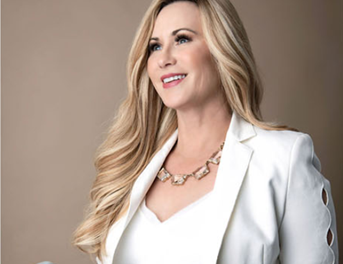A new year has arrived, and maybe this is causing you to reflect on your management style. Do you spend a lot of time managing upward and downward, and cooperating sideways, but less time reflecting on your own values? Maybe only a few percent? If you simultaneously find that you aren’t achieving the results you want, you may benefit from a more values-based leadership. Consequently, you may find it easier to manage in the future.
GR Consult has talked to coach and communication advisor Anette Riis of ABBC, Alpha Business Coaching & Communication, on how to achieve a more authentic managerial style. She recommends that you start by considering the following to find, prioritize, and clarify your values.
What do you want your core duties to be?
Begin with a walk-and-talk with yourself to reflect on what is important for you, and what your situation is currently. Some managers have both the personnel and project manager role; it can be difficult to balance them according to preferences and interests. Therefore, ask yourself whether they’re balanced according to what you favor, and if one of them takes up too much time. How can you find the right balance so that work is fun?
Why are your own values so important?
As mentioned, a managerial job requires various functions. When they are busy carrying out these functions, a lot of leaders ignore their own values. It’s not atypical for bosses to spend 0-2% of their time on finding out what they want out of the role, says Riis. However, according to the book “Birth of the Chaordic Age” by Dee Hock, you need to use 50% of your time on your own values and approximately 5% on managing downward (when you’re clear, your reports become skilled). When you find your own ground or core, it’ll be much easier for you to manage others because you’ll be specific about who you are. Maybe you worry that you’ll need to spend half of your time immersed in yourself. While you don’t have to do that, you do have to become aware of your priorities on an ongoing basis
Riis reminds us that we rarely possess all the competencies we’d like to have. However, as a manager, you have the possibility of letting some of your reports complement you. If you’re not a detail-oriented person, and if you prefer to use a broad brush, then find someone to take care of the details. Then focus on the tasks in which you excel.
What motivates and develops you? What steals your energy?
Think about the times when you have fun at work. This is probably what gives you energy as well. What has your driving force been throughout your career? Your “why”? Did you sell out for a high paycheck, prestige, and a corner office? Are you motivated by seeing other people develop, shine, and achieve career advancements? Or do you prefer personnel management to be at a minimum and basically favor significant project management responsibility? If you’re in doubt, Riis recommends that you to start simply by keeping a logbook. Note what gives you energy and the reverse—when tasks drain you. After some time, you’ll be able to see a pattern.
You can also ask others how they perceive you when you do your best, worst, etc. It’s a good idea to have your colleagues’ perspective, as they see the blind spots that you don’t see yourself. However, be aware that they probably won’t tell you the complete truth due to their relationship with you.
Does your HR department offer personality tests? This can also be a starting point for discovering and talking about the traits that characterize you and those that don’t.
What do you want your own managers to say about you when you’re not present?
Do you want your executives to see you as a visionary manager? If this is your goal, you don’t want them to think that you aren’t painting the big picture for your department or group. In this case, you must consider what to do in order to get there. Have you become like a caseworker because your need for control leaves you with less time for visionary thoughts? Or is it your ideal that you, as a personnel manager, must listen to every one of your reports’ personal challenges? Take a look at what you want others to say about you and compare this to your behavior. Do you walk the talk?
Which values don’t match your managerial position?
Maybe one of your values is a high degree of work quality, which elicits admiration among others and for which you get credit. But if this results in double-checking your reports to a large extent, it’s too much. Also, this will, all other things being equal, result in a lack of time for other important managerial duties. If you control other people’s work a lot, start to think about if there really is a reason to do it. Of all the tasks the person in question solves, how many of them have a quality eligible for double checks? Is it worth the time and effort compared to the quality, or would your time be better spent on other duties? And why do you need to control other people’s work? Here, it’s important to hold control against trust, says Riis. If control is used to a degree such that you develop your reports, then control and trust strengthen each other. However, if you basically take up another person’s job, and he or she leaves your office downcast and crestfallen, your control has gone too far.
How can others see your values in your behavior?
Maybe you’d like to have an everyday working life in which your employees engage more with you. If you want this, you may choose “trust” as one of your values. Afterward, you consider how to obtain this, says Riis. What should you do differently when managing? If you decide you should be more present, then you think about how to do this. Will you start to attend meetings that you used to skip? Will you invite your reports to engage in more one-on-one conversations? You should be very practical in this. If it’s difficult to find out what kind of actions the value must result in, maybe you haven’t defined the value accurately enough.
What are your personal values?
It’ll also be beneficial to simultaneously look at your personal values. Even as a manager, your personality shines through. Therefore, Riis recommends that you ask yourself the following questions to clarify your personal values.
Which occurrences turned your life upside down? When did you develop the most?
To find out, Riis suggests that you think back and find 10 situations—for example, from your childhood to now—that have made an impression on you. Such incidents can help us get to the bottom of what’s important. You may tell the stories to somebody who knows you but doesn’t know you too well. Ask the other person to come up with questions so that you can find out what it is that makes you remember that situation. Maybe you remember a time when you were on vacation with your family and you had an accident, which was a big shock for you. Think about how you reacted to the situation. Which values appeared? Were you paralyzed, or did you start acting to help your parents? Can you see a pattern in your behavior and values, and is there a common denominator that drives you? If yes, you’ll get closer to your purpose in life. When you know what drives you and makes you happy, then you’ve found a way of leaving your footprint in the world.

Anette Riis of ABBC, Alpha Business Coaching & Communication
Anette Riis holds a Master’s in Business Coaching from Copenhagen Coaching Center. This education is EQA accredited by EMCC (European Mentoring and Coaching Council). She founded her business on more than 15 years of experience earned in several major private and public organizations with management consulting, organizational development, and communications sparring.
Anette Riis’ ambition is to support the realization of your goals, expand your room for navigation and challenge you when required. Her starting point as a coach and communication advisor is the open and respectful dialogue, where there is room for reflection, interest in what is occupying you, and finding the right opportunity to act and create development.

Gitte Randrup, is the founder of GR Consulting, a Blogger, Business Partner, and Consultant.
GR Consult was founded in 2017 by Gitte Randrup, whose professional background includes HR, organisation and management, and languages. Gitte has worked with several HR subjects for larger companies, and her approach is that HR activities should be business-oriented and based on strategy and clients’ requirements.
Gitte’s vision is to bring employers and employees closer and create mutually satisfactory working relationships. Her method is a thorough and quality-full process. She advocates that good working relationship can be created with a few means and can be transferred directly to the bottom line.
Gitte help companies find the right employees and contribute to new hires getting the best possible start in their new workplace in order that they are successful and create value for their new company
Facebook: Gitterandrup
Click Here to Buy or View a Print Version of the Magazine




